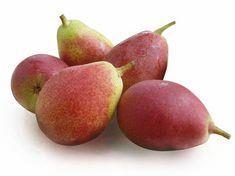
South African apple and pear growers can expect a tough year in their traditional markets in the UK and Europe if the early season sales of Williams Bon Chretien pears are anything to go by.
There is optimism that South African apples will be able to ride the storm, but for pears, with huge European carry-over stocks looming, it will be much tougher.
The UK remains South Africa’s single most important apple market, having received 28 per cent of the total export last year. For pears the story is entirely different, with the UK receiving only 11 per cent, and pear growers and exporters are much more vulnerable to market conditions in the EU and Russia, where 60 per cent of the total export crop was sold last year.
“With the supply situation in Europe as it is at present, the exchange rate becomes an important factor in growers determining whether to ship similar volumes to the UK and Europe this year,” says Capespan’s Sarel Joubert.
“In Europe it will be important to be aware that there are a lot of apples and pears around and exporters will have to plan their supplies carefully,” adds Alastair Moodie of the Melsetter Group.
So, with tough conditions expected for at least the early and middle part of the South African season, the question back in the orchards is what effect this will have on an industry that has had a few good seasons behind it. “The answer lies in the fact that South African apple and pear growers now have more options than in years gone by,” says Wikus Hellmann, one of Green Marketing’s senior marketing executives. Hortgro’s Anton Rabe recently told FPJ that increased sales in Africa, coupled with the strength of the South African market, have become of real strategic importance for the South African industry. “This cushions the South African industry to a degree from exchange rate fluctuations and drop in demand in Europe.”
South Africa’s apple export crop is expected to exceed 26 million cartons, which will be higher than the average crop for the past two years, but below the 2009 crop. Pears are expected to drop below 13m cartons for the first time since 2009. If historical facts are taken into account, it will mean that the UK will receive around seven million cartons of apples and a further 1.4m cartons of pears from South Africa this year.
The South African industry has admitted that it is particularly concerned about the large carry-over stocks in Europe. “We have been monitoring the situation for some time and the whole industry is well aware that specifically fruit of small sizes will have difficult trading conditions,” explains Hortgro’s Jacques du Preez.
Capespan International’s Martin Dunnett says while there can be no question that South Africa continues to deliver excellent tasting apples and pears, competitors have also upped their game with fruit of very good colour being received from other sources. “With so much fruit around on a year-round basis and with so much old season fruit available from CA stores in Europe, it is increasingly difficult to match the price expectations of South African growers,” he points out.
Dunnett laments the fact that the excitement which was previously created around new season fruit has all but disappeared. “The South Africans, with their new season Golden Delicious, always lifted the whole sentiment in the market. We could do with some excitement in the market right now,” he says.
According to Dunnett, it is not surprising that South African growers keep their fruit back longer in CA stores to enter the normally more lucrative later season. Whether it will happen this year is an open question. South African apple and pear growers accept that it will not necessarily only be the taste, colour and general excellence of their products and service that will make or break their season, but rather what happens in the cold stores and corridors of economic power in Europe.
“Let us not underestimate the value and the importance of the UK market for South African apples and pears,” says Joubert. “It will remain a key market, but at the same time we have to be realistic. In a tough year the other options become very important.”
While it is extremely difficult to develop new apple and pear varieties and through that open new niche market opportunities, the South Africans have concentrated on better varieties which not only produce better-coloured fruit, but also cultivars which produce higher yields and improve income back on the farm. New Gala and Pink Lady strains have been planted that will boost these categories in future.
In the pear sector, experimental volumes of the new blushed pear Cheeky are being exported for the first time. “At the moment we only have very small volumes,” reports Hellmann. “But this is expected to grow considerably in future. Cheeky is earlier than Forelle and will enhance the South African blushed pear offer.”
The arrival of Cheeky has previously been hailed as the salvation of the South African dream of extending the blushed pear range. The pear has been bred by South Africa’s Agricultural Research Council, where Taaibos Human is the breeder responsible for apples and pears. It will be commercialised by Culdevco, the South African cultivar development company with which the ARC has an agreement for the commercialisation of its varieties.
“Cheeky is a juicy pear with a strong flavour,” says Human. “The blush is even and consistent and it does not require the same storage period before marketing that one has in the case of Forelle.” The first Forrelle, a variety which normally has to undergo a period of cold storage before it can be packed and shipped to enhance the ripening and taste of the fruit, will also now be available some three weeks earlier than usual. Treatment of the variety with Smartfresh has yielded very positive results, enabling growers to pack earlier. -



